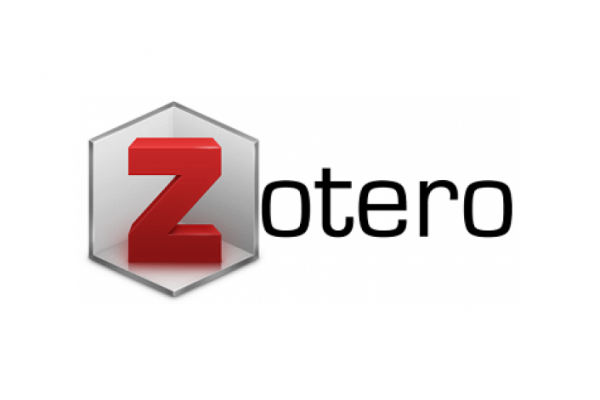Mahmud Yunus Thoughts on Functional Objectives in Arabic Language Learning: Its Application in Indonesian Islamic Boarding School | Afkār Mahmūd Yūnus fī Al-Ahdāf Al-Wadzīfīyah Lita’līm Al-Lughah Al-‘Arabīyah: Tathbīquhā fī Al-Ma’āhid Al-Islāmīyah bi Indūnīsīyā
Abstract
This study aims to reveal Mahmud Yunus' ideas about functional Arabic learning objectives, and the application of Arabic learning objectives based on Mahmud Yunus' ideas at Gontor Modern Islamic Boarding School 9. This study used a qualitative design with two approaches: library research and case study. Research data were obtained through documentation, observation, and in-depth interview. The verification of the correctness, applicability, and reliability of the data was carried out through data triangulation. This study resulted in the following conclusions: 1) the purpose of learning functional Arabic was to use social, practical, and natural functions as a tool to master listening skills (understanding spoken language), reading (understanding written language), oral expression and written expression, 2) the application of Mahmud Yunus thoughts on the objectives of teaching Arabic in modern Islamic boarding schools in Gontor was illustrated in language, cultural, and communicative goals. The conclusion of the research illustrates that the objectives of learning Arabic from the perspective of Mahmud Yunus and its implementation in Gontor Modern Islamic Boarding School is to use social, practical, and natural functions as a tool in realizing the objectives of learning Arabic which are language, cultural, and communicative goals.
Keywords
Full Text:
PDFArticle Metrics
Abstract view : 251 times | PDF view : 222 timesReferences
’Athiyah, M. ’Ali. (2008). Mahārāt al-Ittishāl al-Lughawi wa Ta’līmuhā. Oman: Dār Al-Manāhij linnashar wa al-Taujī’.
’Izuddin Al-Busyaiky. (2005). Tā’lim al-Lughah al-’Arabiyah Linnathiqīn biqhairihā min manzhūr wa zhifī. 357–372. Ribath / MAR.
Abdullah, M. (2020). Pembaharuan Pemikiran Mahmud Yunus Tentang Pendidikan Islam Dan Relevansinya Dengan Pendidikan Modern. Jurnal Pendidikan Agama Islam, 5(2).
Al-Khresheh, M. H., Khaerurrozikin, A., & Zaid, A. H. (2020). The efficiency of using pictures in teaching speaking skills of non-native arabic beginner students. Universal Journal of Educational Research, 8(3), 872–878. https://doi.org/10.13189/ujer.2020.080318
Al Shlowiy, A. S. (2019). Language, religion, and communication. Journal of Asian Pacific Communication, (December 2019), 1–16. https://doi.org/10.1075/japc.00040.shl
Aslan, A. (2018). Dinamika Pendidikan Islam di Zaman Penjajahan Belanda. SYAMIL: Jurnal Pendidikan Agama Islam (Journal of Islamic Education), 6(1), 39–50. https://doi.org/10.21093/sy.v6i1.1024
Efendi, F. (2015). īfaq Tārikhiyah lilughah al-’Arabiyah fī Indonesia. Riyadh: Darul Ujuh.
Gontor, M. D. A.-S. (n.d.). Al-Manhaj Al-Dirāsy ’ām 1437-1438 H bikuliyah al-Mu’alimīn al-Islamiyah. Gontor.
Hector Hammerly. (1994). An-Nazhariyah Al-Takāmuliyah fī Tadrīs Al-Lughāt , tarjemah Rāsyd Al-Duwaisy. Riyadh: Maktabah Al-Maliki al-Wathaniyah.
Jauhar, N. I. (2007). Ittijīhāt Jadīdah fī majāla ta’līm al-Lughah al-’Arabiyah fī Indonesia. Journal of Indonesian Islam, 1(2), 420.
Mahmud Yunus. (n.d.). Pokok-Pokok Pendidikan dan Pengajaran. Jakarta: Hidakarya Agung.
Mahmud Yunus, M. Q. B. (1981). Al-Tarbiyah wa al-Ta’līm. Ponorogo: Darus Salam press.
Makinuddin, M. (2015). Perumusan Kompetensi Dan Tujuan Pembelajaran. Miyah, X(Januari), 1–10.
Malik, B., & Abu, M. Y. (2021). Upaya Memajukan Pendidikan Islam Di Indonesia. 8, 1–15.
Masqon, D. (2012). Al-Lughah Al-’Arabiyah: ta’līmuhā wa ta’allumuhā fī Indonesia al-Hadīsah (Qirā’ah wāqi’iyyah Numūziyah). Tsaqafah, 8(1), 211–230. https://doi.org/http://dx.doi.org/10.21111/tsaqafah.v8i1.20
Maturedy, F., Nur, P., Hidayanti, Y., & Haikal, H. (2020). Ta’līm Al-Muhādatsah bi Al-Lughah Al-‘Arabīyah fī Al-Ansyithah Al-Idhāfīyah Lithalabah Ma’had Al-Jāmi’ah. 8(2), 117–130. https://doi.org/10.23971/altarib.v8i2.2185
Mihrang. (2018). Implementasi Program Intensifikasi Bahasa Arab Dalam Penguasaan Kemahiran Berbahasa Arab Bagi Santri Pondok Pesantren Modern Rahmatul Asri Kabupaten Enrekang. 25–113.
Muhammad Ismail Bin Syuhada. (2014). Al-Tsaqāfah wa Ta’līm al-Lughah al-’Arabiyah Li ghairin Nathiqīn bi Lughati Ukhrā. 01(02).
Nata, A. (2004). Tokoh-Tokoh Pembaharuan Pendidikan Islam Di Indonesia. Jakarta: Rajagrafindo.
Ninoersy, T., Za, T., & Wathan, ; Najmul. (2019). Manajemen Perencanaan Pembelajaran Bahasa Arab Berbasis Kurikulum 2013 Pada Sman 1 Aceh Barat. Jurnal Kajian Ilmu-Ilmu Keislaman, 05(1), 83–102.
Nurhakim, M. (2018). Imam Zarkasyi Dan Pembaharuan Pesantren : Rekonstruksi Aspek Kurikulum, Menejemen Dan Etika Pendidikan. Progresiva : Jurnal Pemikiran Dan Pendidikan Islam, 7(1), 1. https://doi.org/10.22219/progresiva.v7i1.7404
Pane, A., & Darwis Dasopang, M. (2017). Belajar Dan Pembelajaran. FITRAH:Jurnal Kajian Ilmu-Ilmu Keislaman, 3(2), 333. https://doi.org/10.24952/fitrah.v3i2.945
Prihatsanti, U., Suryanto, S., & Hendriani, W. (2018). Menggunakan Studi Kasus sebagai Metode Ilmiah dalam Psikologi. Buletin Psikologi, 26(2), 126. https://doi.org/10.22146/buletinpsikologi.38895
Ramayulis dan Syamsul Nizar. (2005). Ensiklopedi Tokoh-Tokoh Islam. Ciputat: Quantum Teaching.
Rijali, A. (2018). Analisis Data Kualitatif. 17(33), 81–95. https://doi.org/DOI: http://dx.doi.org/10.18592/alhadharah.v17i33.2374
Shaath, S. I., Studies, P., & Beirzait, P. (2020). The Motivation of Non- Native Arabic Speakers to Learn Arabic Language : Beirzait University as a Model. 14(7), 1–26.
Sutrisno Ahmad, Rif’at Husnul Ma’afi, A. H. Z. (2011). Ushūl Tarbiyah Wa Ta’līm. Gontor.
Thu‘aimah, R. (1989). Ta’lîm al-Arabiyah lighairi an-Nathiqîn bihâ manâhijuhû wasâlibuhû,. Rabât: ISESCO,.
Ufuk, N. B. (2018). The Role Of Goal Setting In Metacognitive Awareness As A Self-Regulatory Behavior In Foreign Language. IOJET, 662–671. https://doi.org/EJ1258473
Wahida, B., & Saidah, S. (2020). The History of the Development of Arabic in Indonesia. Diwan : Jurnal Bahasa Dan Sastra Arab, 6(2), 99. https://doi.org/10.24252/diwan.v6i2.15832
Wardun. (2016). Akhbār ’Ālam ma’had Darus Salam li Al-Tarbiyah al-Islāmiyah al-Hadītsah. Gontor Ponorogo: Dar pressus Salam.
Yunus, M. (1975). , Metode KhususPengajaran Bahasa Arab (Bahasa Al-Qur’an). (Jakarta: CV Al-Hidayah.
Zarkasyi, H. F. (2020). Imam Zarkasyi’s modernization of pesantren in Indonesia: (A case study of darussalam gontor). Qudus International Journal of Islamic Studies, 8(1), 161–200. https://doi.org/10.21043/QIJIS.V8I1.5760
DOI: https://doi.org/10.23971/altarib.v10i1.3929
Article Metrics
Abstract view : 251 timesPDF - 222 times
Refbacks
- There are currently no refbacks.
Copyright (c) 2022 Muhammad Yusuf Salam, Yovan Luksfinanto, M Abdul Hamid

This work is licensed under a Creative Commons Attribution-ShareAlike 4.0 International License.
Indexed By:
Tool:




Al-Ta'rib : Jurnal Ilmiah Program Studi Pendidikan Bahasa Arab IAIN Palangka Raya is published by Arabic Education Departement (PBA), the Faculty of Education and Teacher Training (FTIK),� State Islamic Institut (IAIN) of Palangka Raya in partnership with IMLA (Association of Arabic Lecturers).
Editor and Administration Address:
Arabic Education Departement (PBA), the Faculty of Education and Teacher Training (FTIK),� State Islamic Institut (IAIN) of Palangka Raya, Jalan G. Obos Komplek Islamic Centre Palangka Raya, Kalimantan Tengah, Indonesia, Postal Code 73111.Email: [email protected]/[email protected], Website: http://e-journal.iain-palangkaraya.ac.id/index.php/tarib
This work is licensed under a Creative Commons Attribution-ShareAlike 4.0 International License.



















